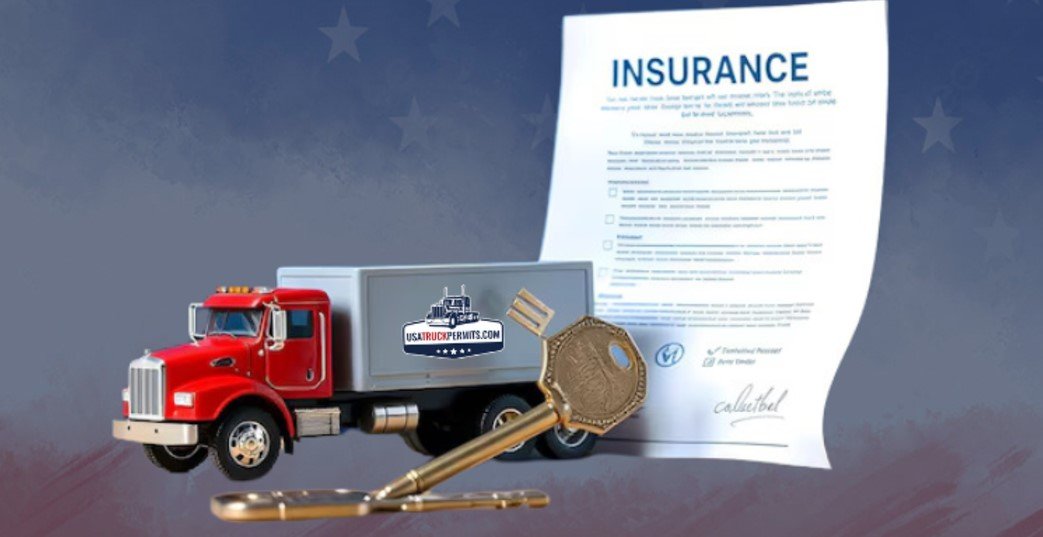Types of Truck Insurance Policies in the USA

Types of Truck Insurance Policies in the USA
Whether for personal or business use, owning a vehicle in the United States calls for appropriate insurance. Given the several types of truck insurance policies in the USA, selecting the correct coverage can seem overwhelming. However, understanding the various types of truck insurance coverage and their respective coverage can help streamline the process. This article will discuss the various truck insurance policies available in the United States and offer guidance on choosing the right one for your needs.
Understanding Truck Insurance
One should grasp the overall idea of truck insurance before delving into the minutiae of several kinds of plans. In case of damage, theft, or accident, truck insurance guards your car from financial loss. The law also mandates specific degrees of coverage, especially if you operate the truck for business use.
The value of truck coverage
Whether you run a fleet or an independent owner-operator, any truck owner cannot negotiate not having insurance coverage. Trucking mishaps are expensive; hence, the financial effects of a catastrophe can be disastrous. Furthermore, the knowledge that truck insurance protects against unforeseen events provides a sense of peace. Whether your truck sustains damage, you sustain injuries in an accident, or you face third-party liability, having the right insurance coverage can shield you from financial ruin.
Types of Truck Insurance Policies
Truck owners have various choices for different kinds of truck insurance policies. Every policy has a distinct function; the correct one for you will rely on elements including your budget, the kind of truck you drive, and how you use it. Let us review the most often used kind of truck insurance coverage available in the USA.
Liability insurance
The most simple and necessary kind of truck insurance available in the United States is liability insurance. Driving a truck calls for liability insurance to cover damage or injuries you inflict on other people in an accident. There are two main types of liability insurance available:
Bodily Injury Liability (BIL) covers medical expenses, lost wages, and other costs related to damage to people in an accident you caused.
Property Damage Liability (PDL) provides coverage for repairing or replacing property (e.g., another car or a fence) that you damage in an accident.
Collision Insurance
Regardless of who is at fault, collision insurance covers damage to your own truck should an accident strike. Should a collision damage your truck, this coverage will assist with replacement or repair costs. If your truck represents a significant financial investment, especially for owners who use it for business purposes, this type of insurance is absolutely necessary.
Comprehensive Insurance
Comprehensive insurance shields your truck against damage not resulting from an accident. This covers theft, vandalism, fire, natural disasters, or animal striking. Those who desire comprehensive protection against various hazards that may arise while their truck is not in operation should definitely consider this coverage.
Benefits of Comprehensive Insurance
guards against damage other than that from collisions
addresses vandalism and theft of covers.
Your truck provides comfort when parked or not in use.
cargo insurance
Whether you are moving goods, cargo insurance is absolutely crucial. This type of coverage protects the items you are moving from theft or damage during transportation. For truckers transporting delicate or valuable goods, such as electronics or perishables, cargo insurance might be extremely helpful. Different degrees of cargo insurance, such as liability for goods or all-risk policies, are available depending on your specific needs.
Different types of cargo insurance
General cargo insurance typically covers furniture, equipment, and other conventional items.
Coverage for specific commodities like refrigerated goods or hazardous materials defines specialty cargo insurance.
Bobtail Insurance
Bobtail insurance covers trucks driven without a trailer. Whether you use your vehicle for quick excursions without hauling goods or are an independent owner-operator, bobtail insurance will help you stay covered in case of an accident. Although bobtail insurance typically costs less than complete commercial trucking insurance, it may not cover the items you’re transporting.
Physical Damage Insurance
Combining comprehensive coverage with collision, physical damage insurance offers one policy. Truck owners should consider this alternative to ensure coverage for both non-collision-related events and accident-related damages. Although this kind of coverage offers greater protection for your truck, it may cost more than ordinary liability insurance.
When to Consider Physical Damage Insurance
Regarding new or premium-value trucks
When running the truck in high-risk locations
If you primarily operate your business from your truck
Uninsured/Underinsured Motorist Coverage
When the at-fault driver lacks enough insurance to pay the damage, this insurance becomes absolutely vital. Uninsured or underinsured motorist coverage protects your finances when you are involved in an accident with a driver who has inadequate coverage or no insurance at all. It is crucial in situations where you are not at fault but incur major costs.
Trucking Worker Compensation Insurance
Should you use drivers, trucking workers’ compensation insurance is required. It covers employee injuries sustained while on the job, medical bills, lost income, and rehabilitation costs. Most states require this insurance for companies that employ truck drivers, as it serves to protect both the company and the employee from potential litigation.
Selecting Correct Truck Insurance for Your Requirements
Selecting appropriate truck insurance requires knowing your particular requirements and the hazards you run across. These elements should assist you in making an informed decision:
Type of Truck and Use
Your own type of truck and how you utilize it will greatly affect the kind of insurance you need. If you run a long-distance rig, for instance, you might require different coverage than if you just utilize a pickup vehicle for local deliveries. Consider the weight, dimensions, and contents of the goods you are moving.
Budget considerations
Although choosing the least expensive solution is appealing, it’s important to weigh cost with coverage. Steer clear of cutting out on coverage that can expose you to later hefty costs. Search for insurance plans with the appropriate coverage at a price your budget allows.
Legal Requirements
Verify that the legal insurance requirements in your sector and state make sense. Higher degrees of insurance are generally required of commercial trucks than of personal automobiles; hence, you will have to satisfy these criteria before you start driving.
Insurance Agent’s Reputation
Choosing the correct coverage is only one aspect; another is choosing a respectable insurance company. Investigate the financial stability, customer service, and claims procedure of the insurer. It is crucial to collaborate with a reliable source, especially when you require significant assistance.
Conclusion
To sum up, any truck owner must first choose the appropriate truck insurance as a crucial action. Whether you run one truck or a fleet, the correct coverage will guard you from legal problems, financial losses, and road peace of mind. Consider the various types of truck insurance available, assess your specific needs, and collaborate with a reliable insurance provider to determine the most suitable option. Spending time selecting the appropriate policy is an investment that will help you avoid a lot of problems down the road.






